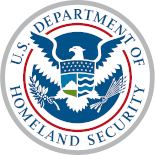Active Notices
Please read the GPS Testing Notices for a list of approved GPS TT&E (testing, training activities, and exercises) that may affect GPS receivers.
Overview of the US Federal Government's Policy on Activities Which May Cause Disruption to GPS:
On occasion, the US Federal Government is required to conduct GPS tests, training activities, and exercises that involve interfering with GPS receivers. These events go through a lengthy coordination process involving the Federal Aviation Administration (FAA), the US Coast Guard (USCG), the Department of Defense (DoD) and other government agencies.
Due to the fact that these training and testing activities can involve a number of aircraft, ships and/or other military equipment and up to hundreds of personnel, cancellation or postponement of a coordinated test should only occur under compelling circumstances. In general, only safety-of-life/safety-of-flight issues will warrant the cancellation or postponement of an approved, coordinated GPS test.
In the event that a GPS activity compromises a safety-of-life mission, procedures exist to protect those involved. If a Lifeguard (medical evacuation flight), fire-fighting mission, or other aviation-related activity where GPS navigation is essential is impacted the conflict should be reported to the nearest FAA Air Traffic Control (ATC) facility. FAA will issue ”cease buzzer” (stop exercise) notification to the tester. All testers are required to set up a point of contact immediately reachable via telephone throughout the testing period.
Non-aviation related safety-of-life activities that require immediate cessation of GPS testing should be reported to the USCG Navigation Center (NAVCEN). The NAVCEN will either issue the “cease buzzer” or relay it to the FAA for issuance.
In the event that a safety-of-life conflict is anticipated, but not immediate, the affected GPS user should notify the USCG NAVCEN. An example of this is firefighting activities that may spread to testing areas. In some instances, the USCG may choose to put the tester directly in contact with the affected GPS user. In other cases, the USCG may choose to notify the appropriate government official to resolve the conflict.
When attempting to resolve such a conflict, the interests of both parties must be taken into account.
Conflict resolution considerations:
- What is the safety issue involved?
- Is there an alternative, non-GPS method to perform the activity?
- What are the implications to National Security if the test, training or exercise is terminated or postponed?
- For both parties, what is the purpose of the activity?
- For both parties, how many individuals or systems are affected?
- For both parties, what are the economic implications?
- Is it possible for either party to reschedule to another date or set of dates?
- Is it possible for either party to only use a portion of the dates they require?
- Is it possible for either party to use different or fewer times of day than in the original request?
The answers to these questions will provide guidance to the decision makers who will resolve the issue.


